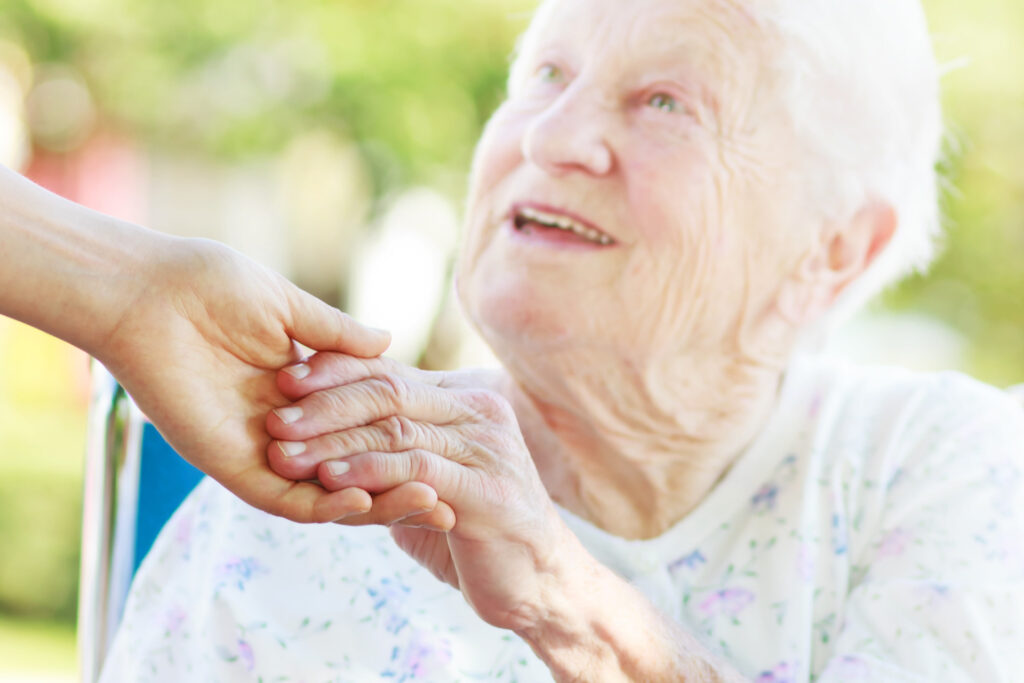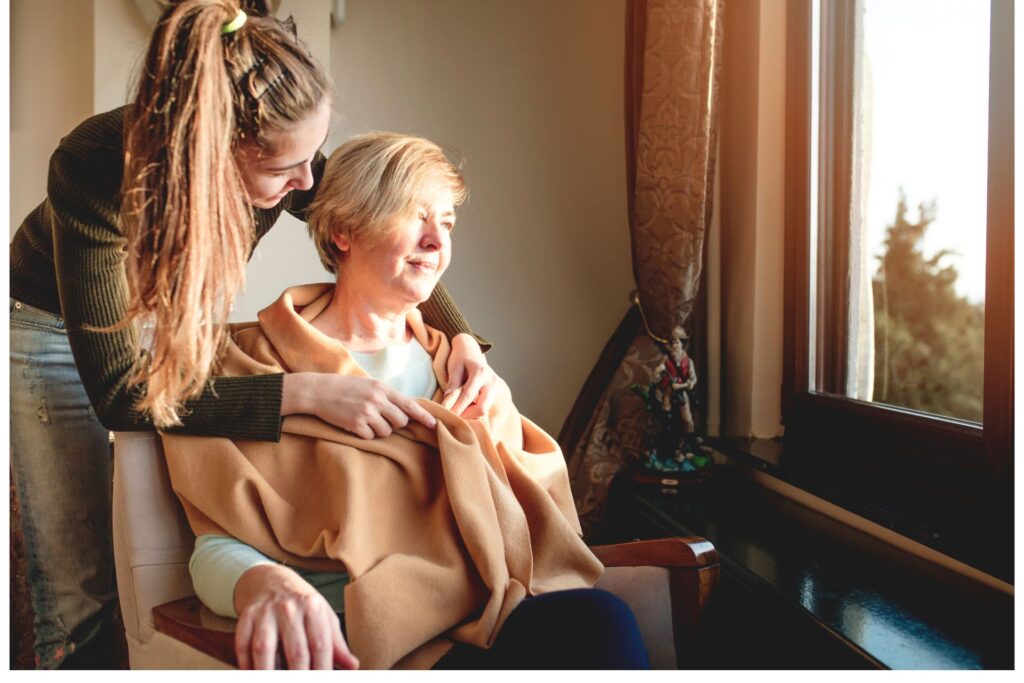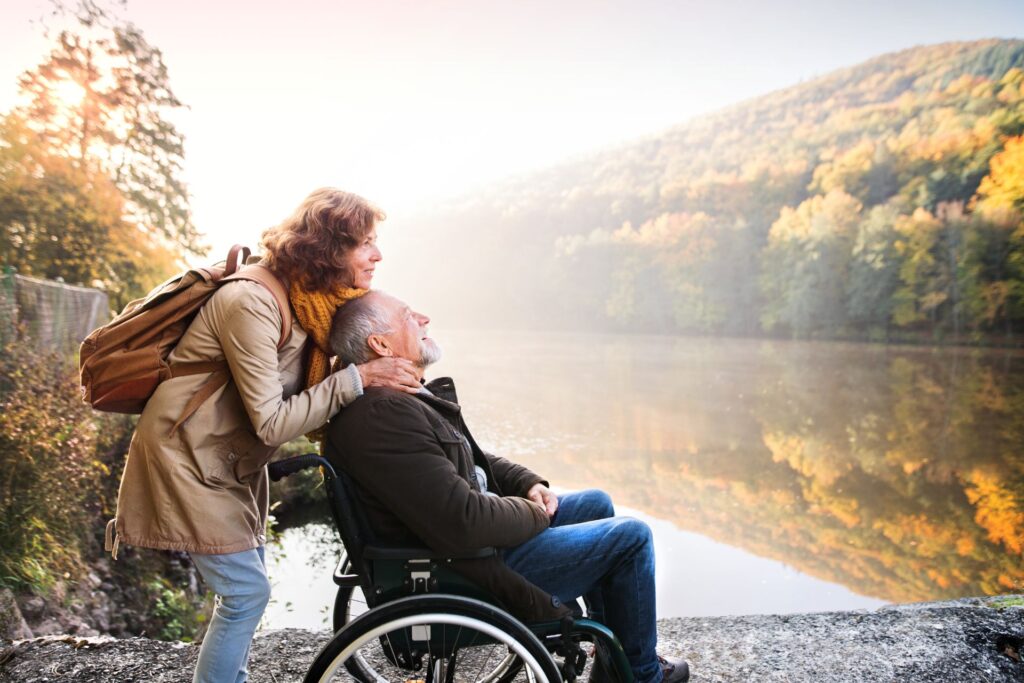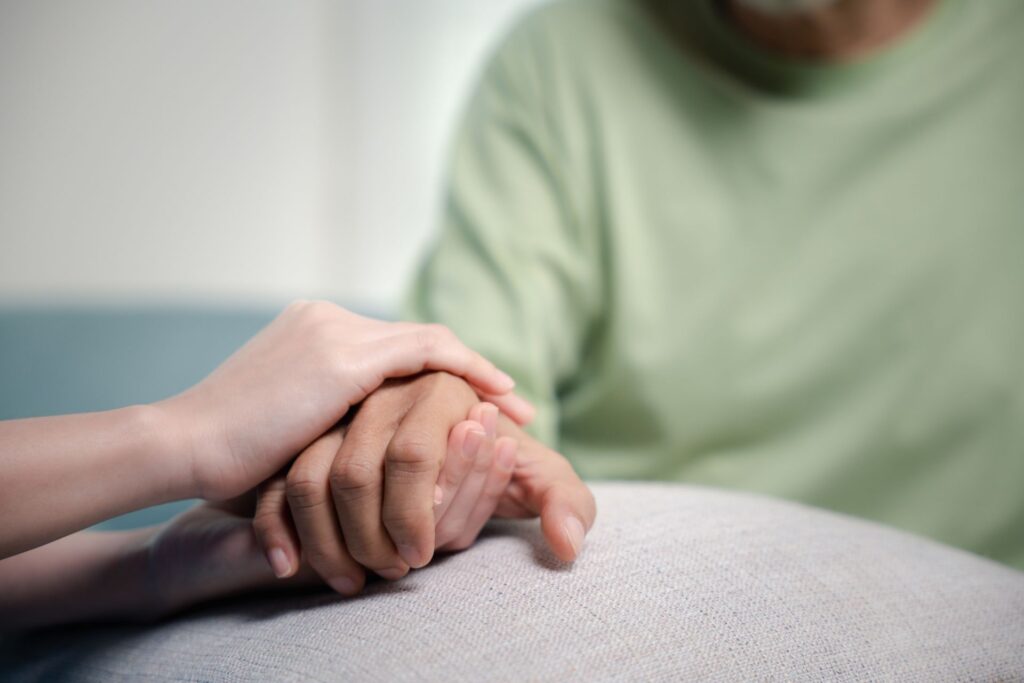Get our newsletter
Life is unpredictable, and it's essential to be prepared for all eventualities, including the end of your own life. Failing to plan ahead can have devastating consequences for you and your loved ones.
Get our tips now
I would like to access detailed information on death formalities.
Life is unpredictable, and it's essential to be prepared for all eventualities, including the end of your own life. Failing to plan ahead can have devastating consequences for you and your loved ones.
Get our tips now
Anticipate your life data to simplify the death process.
Vous êtes plus de 10 000 à nous rendre visite ici tous les mois, merci !

Many of us know a family caregiver spouse, parent, child, nephew, etc. It's not their job to provide daily care for someone who is ill, disabled or dying.
With life expectancy increasing and more and more people suffering from chronic illnesses, the role of family carers is becoming ever more important. If they take care of their loved ones on a daily basis, who helps family carers? What are the challenges that emerge from the death of a family caregiver and who takes over? Family caregivers, often on the front line for support family members in need, embody a silent but powerful force. indispensable.
The death of a family caregiver represents a significant emotional and organizational challenge for the family. This article explores the different steps to get organized and ensure a smooth transition after this sad event. It is essential to understand the responsibilities of the family caregiver and to implement a plan to manage the various tasks that need to be accomplished after their departure.
[qlg_quiz id=”104″]
In addition to coping with the loss of a loved one, the family facing administrative procedures, must also be organized to replace the caregiver. This article suggests tips and resources to deal with these issues calmly and effectively, helping those left behind to find their own balance between grief and the new responsibilities that fall to them.
Key points

A family caregiver is a non-professional person who provides assistance to a family member. regularbe it physical, psychological or logisticalto a dependent relative because of age, illness or disability.
A family carer, also known as a caregiver, is a person who supports a relative in loss of autonomy and having need help to carry out the essential acts of daily life (eating, getting around, washing, etc.). Family carers may be spouses, parents, children or close friends of the dependent person.
This help is often provided within the family home, but it can also extend to other settings.
The responsibilities of a family caregiver are vast and can include tasks such as assistance with daily activities, managing medication, accompanying you to medical appointments and much more. Their role is central to maintaining well-being and quality of life of the person being helped.
Caregivers often provide support emotional and social to help people maintain their quality of life.
Family carers face a a multitude of daily challenges. On the one hand, they have to navigate the complexities of healthcarewhile managing the emotional and physical needs of the person being cared for. They are often confronted with stressful situationsThey need to be resilient and adaptable. In addition, they must continually reconcile their caring role with other responsibilitiesThis accumulation of responsibilities can sometimes lead to the loss of a family member. This accumulation of responsibilities can sometimes lead to professional and emotional exhaustionknown as caregiver burnout.

The role of family caregiver has a impact on the personal lives of those who take on the burden of care. It can affect family relationships, social life and even the caregiver's mental and physical health. Caregivers can get together isolatedwith little time for themselves or to pursue their own interests and passions.
What's more, the load to take care of a loved one is complex emotionally and can lead to feelings of sadness, frustration or guilt. It is therefore essential that family caregivers receive the necessary support necessary to manage these impacts, through support networks, educational resources and, where appropriate, professional help. By recognizing and addressing these challenges, we can work to create a society where caregivers are supported and valued, enabling a better quality of life for all.

In today's digital age, family caregivers have access to a wide range of services.tools and resources who can make their job easier.
Family caregivers have access to a variety of tools and resources to support them in their often demanding role. Here is a non-exhaustive list of what may be useful:
Shared calendars simplify the coordinating medical appointments, while drug recall avoid forgetting to take them. By combining them, caregivers can manage their loved ones' care more effectively.
Many forums and support groupsfor example, offer family carers a valuable forum for exchanging experience and advice. Medical information databases are also essential for understanding health conditions and treatments.
Many consultations with social workers or counsellors are invaluable for obtaining advice on stress management and exploring the care options available to family caregivers. What's more, since the confinement, telemedicine services offer the possibility of remote medical consultations, facilitating access to care and medical advice.
Adult day care centers provide valuable respite for caregivers, taking care of their loved ones during the day. And more, meal delivery services are essential for those unable to prepare meals, ensuring adequate nutrition. The tmedical transport can also relieve and facilitate travel to medical appointments, ensuring access to essential healthcare.

The importance of planning Planning for the death of a family caregiver is a crucial step. Not only does it enableanticipate the future needs of the person being cared forbut also preserve as much as possible those who will take over from us.
Thoughtful planning can include :
Proper transition planning can facilitating changeThis reduces the stress and uncertainty that can arise on the death of a caregiver, and ensures a smooth transition for both the person being cared for and the new caregiver in what is already a particularly difficult period.
To ensure a smooth transition, it is essential to communicate openly with all family members and stakeholders. Establish a clear planwhich details the roles and responsibilitiescan prevent conflicts and misunderstandings.
It is also advisable to look for external supportWhether through community support groups or mental health professionals. It is obviously important to spare some time for mourningAnd remember that everyone goes through this period at their own pace. Finally, don't forget not to take care of yourself during this period of transition, looking for ways to preserve your physical and emotional well-being.
The death of a family caregiver marks the beginning of a period of delicate transition. The immediate steps following death require swift, coordinated action. It is essential to notify the relevant authorities, as well as family and friends.
The next step is to take care of administrative formalitiesThese include obtaining a death certificate and notifying the relevant institutions (banks, insurance companies, etc.). At the same time, it's crucial to ensure that the continuity of care for the person being cared forby ensuring a smooth, seamless transition.
Postumo can provide step-by-step support for the caregiver's death-related formalities, to make administrative management easier and reduce the workload. Visit Essential solution also enablesidentify all the assistance for which the family and the person being helped are eligibleYou're guaranteed to meet your deadlines and not miss out on valuable financial support. Don't hesitate to contact one of our advisors for assistance and guidance.

Taking on the role of family caregiver is a major responsibility that requires preparation and empathy. Here are a few tips that may prove useful:
For new caregivers, it's vital to know about and access resources. available. This can include local and national organizations who offer support and advice specific training for caregivers, as well as online resources providing practical information and tools. It is also advisable to look for support groups where you can share your experiences and learn from others in a similar situation.
General associations for caregivers
Association française des aidants
Don't hesitate to consult healthcare professionals to help you navigate your way through the emotional challenges of being a caregiver. By using these resources, you can equip yourself for success in your new role, while preserving your own health.
Postumo offers a centralized solution to organize all death-related formalitiesallowing you to smooth transmission of information and responsibilities. By using Postumo, caregivers can ensure that all necessary information is easily accessible, reducing the administrative burden often associated with taking over.
The platform enables meticulous organization of important documentsThis makes it easier to access and retrieve crucial information at the right time. Whether it's legal, medical or financial documentseverything is centralized in a secure location. The platform uses state-of-the-art technologies to ensure that sensitive information is protected from unauthorized access.
Si Postumo supports families from the outset with a foresight approach and organization, the platform also offers relieving the burden on loved ones by assisting with the essential steps to be taken after a death.
The process is designed to be as intuitive as possible. L'registration is simpleand you'll be guided through the various stages to set up your profile and start using the platform's features.
The role of family carers is growing constant evolutionit is imperative to preparing for the transition after their death. As we have explored, understanding the nuances of the caregiver's role, anticipating the challenges and equipping oneself with the right tools are crucial steps in this process. Postumo presents itself as a innovative solution, offering substantial support to facilitate this transition, ensuring secure and efficient information transmission.
We urge readers to anticipate and consider the use of tools to navigate this period with greater serenity and efficiency.
By taking proactive steps, we can ease transitions, soothe those being cared for and ensure a smooth, respectful handover.
A family caregiver is a person who provides regular, non-professional assistance to a loved one suffering from a disability, serious illness or loss of independence.
When a family caregiver dies, it is important to :
Caregiver leave enables you to suspend or reduce your professional activity to take care of a relative suffering from a disability or loss of autonomy. It is compensated and accessible under certain conditions.
Caregivers' rights include the right to respite, the right to caregiving leave, and the right to health, among others. These rights aim to support caregivers in their role and enable them to reconcile their personal and professional lives.
Help for family carers can be obtained through various respite solutions, financial allowances, and support programs organized by governmental and non-governmental organizations.
Respite solutions include day or night care, temporary accommodation and home-based relays, enabling caregivers to take time out for themselves.
Caregivers can benefit from financial aid, psychological support and information on their rights and the help available through various platforms and organizations.
National Carers' Day, celebrated every year on October 6, aims to highlight the importance of carers in society and promote the creation of rights adapted to their daily lives.
Caregivers can find out more about their rights at meetings organized on National Caregivers' Day, as well as from healthcare and homecare professionals.
To qualify as a "proche aidant", you need to have a close, stable relationship with the person you are helping, reside in France, and provide non-professional assistance to carry out all or part of the daily activities of the person you are helping.
Compensation for caregiver leave is provided by theDaily Caregiver's Allowance (AJPA)which is designed to offset part of the employee's loss of salary.
A request for respite can be made by consulting the accompaniment and respite platforms, the MDPH on which the caregivers depend, and the communal social action center (CCAS) of their community.
The right to respite enables caregivers to take time for themselves, to better reconcile their constraints with their personal and professional lives, and to benefit from various respite solutions.
The resources available to caregivers include financial aid, respite solutions, and information on their rights and the help available.
Public policies support caregivers by creating rights adapted to their daily lives, promoting their role in society, and organizing events to inform and support them.
To take over from a caregiver, it is advisable to :
Nurses play a crucial role in this process, notably by :
When choosing a new caregiver, it is advisable to :
Yes, it is possible to be paid for caring for a loved one. In some cases, family carers can benefit from allowances or compensation, such as the Allocation Journalière du Proche Aidant (AJPA). It's important to find out about the different options available, and to consult the relevant organizations to find out about the terms and conditions of remuneration.
The well-being of family carers can vary according to various factors, including stress levels and workload. It is recognized that the role of caregiver can have an impact on health and well-being. It is therefore essential for caregivers to take care of themselves, seek support and take regular breaks to preserve their health and quality of life.
Caregivers can find support and information through various governmental and non-governmental platforms and organizations, as well as during special events such as National Caregivers Day.
Family carers are entitled to specific leave in the event of the death of the loved one they were helping. They can also benefit from psychological support and assistance with administrative formalities linked to the death. It is important to contact the relevant organizations to find out about all the rights and assistance available in this situation.